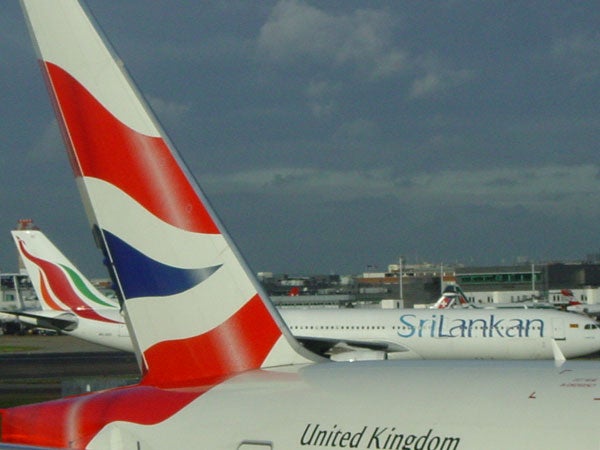Simon Calder: The BA strike - the winners and losers

"Nobody wins here," said Unite's Tony Woodley of the difficult and damaging dispute between his union and British Airways. "Strikes are in nobody's interests," echoed a Downing Street spokesman.
They are, of course, describing the toxic tussle between BA management and the cabin-crew union over working conditions. But their words make me fear for the chances of a long-term cure, if the parties involved in finding a settlement can convince themselves that there are no beneficiaries of the strikes.
Demonstrably wrong: the dispute that has jeopardised millions of passengers' plans, and dragged the UK's reputation through the mud for so long, has produced many winners.
For a start, every passenger who managed to fly in and out of Heathrow during the seven days of strikes by BA cabin crew was an instant beneficiary, whatever carrier they were travelling on. With the airport's main airline cancelling hundreds of flights, the usual queues for take-off and "stacks" prior to landing were minimised. The main winners, though, are BA's competitors, for whom Christmas has endured long into spring.
The prospect of further strikes later this month means any traveller who needs certainty in their plans will avoid BA in favour of its more reliable rivals, who have already enjoyed a bountiful end to the current financial year.
Indeed, you can even imagine these prospering airlines chipping in to Unite's £700,000 strike fund. The longer the cabin crew's campaign to retain hard-won working practices goes on, the more business will go the way of Virgin Atlantic, BMI and every foreign airline serving Heathrow. And the weaker will become an airline that is already enduring a second year of record losses and is, according to its boss, in a "fight for survival".
The losers extend well beyond BA's shareholders and strikers. One notable casualty is Scotland – which, at the first sniff of trouble at Heathrow, is traditionally cut off by British Airways. Anglo-Scottish links are always the first to go, on the basis that terrestrial alternatives are available. But overseas business travellers are unlikely to be impressed to learn, on landing at Heathrow, that they face an eight-hour coach trip instead of the expected 80-minute hop.
Even on Thursday, two days after the strike finished, 10 flights between London and Scotland were cancelled as BA sorted itself out. The airline seems to have an unhealthy disdain for the nation, having whittled down its Scottish route network from intercontinental (does anyone else remember the Prestwick-New York link?) to a rump comprising Glasgow, Aberdeen and Edinburgh, each connected only to London.
The UK tourist industry, too, has lost business that it will never recover. While British travellers focus on trips overseas, a broadly equal and opposite number of people use BA for their holidays here. Plenty of them will simply have cancelled their trips when strikes were threatened, and used the refund to travel somewhere less prone to disruption (not France nor Italy, then).
At least the environment enjoyed a breather, what with hundreds of flights being grounded – or so you might imagine.
Sadly, the opposite happened. Plenty of empty wide-bodied Boeings flew in and out of Heathrow – not, despite union assertions, to make BA's operations look good, but to "position" the 777s and 747s to places where both cabin crew and passengers were waiting. Add in the environmental cost of flying in dozens of aircraft from across Europe to fly on behalf of BA, and it's clear that the planet took a hammering along with the airline's revenue and reputation.
A yen for the East
An early casualty of the British Airways cabin-crew dispute appeared to be Japan. Unite, the union involved, cited the land of the rising sun as the home of the £15 yoghurt – to support the assertion that BA's allowances are too low. Once the cost of yoghurt leaked out, surely Brits burdened by a near-worthless currency would avoid Japan?
The Japan National Tourism Organization (JNTO) mounted a strenuous defence of the dairy-products industry on this page, recommending Aloe Vera-flavour yoghurt for a very reasonable 31p each. They must also have launched a viral (or perhaps bacterial) marketing campaign about good-value Japan, because this week the JNTO announced a 38 per cent rise in British visitors.
Meanwhile the concept of fermented milk as currency has been picked up by someone signing themselves "A340 Driver":
"BA's striking cabin crew are reported to be earning strike pay of £30 a day. That represents a pitiful two yoghurts."
Join our commenting forum
Join thought-provoking conversations, follow other Independent readers and see their replies
Comments